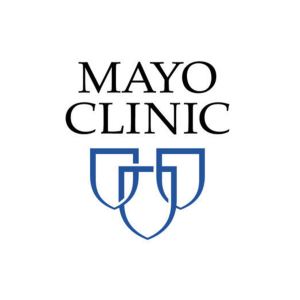Job Summary:
The Clinical Interventional Radiology Nurse is skilled in interventional radiology procedures, preoperative, and postoperative care.
Hours:
- Per Diem
Essential Job Functions:
- Conduct thorough assessments of patients scheduled for procedures, reviewing medical histories, assessing vital signs, and ensuring appropriate pre-procedure preparation, including obtaining informed consent and addressing any concerns or questions.
- Collaborate with radiologic technologists, anesthesia providers, and other healthcare professionals to coordinate patient care and optimize procedural outcomes. Communicate effectively within the interdisciplinary team to ensure continuity of care and timely interventions.
- Perform the insertion of various vascular access devices using sterile technique and ultrasound guidance when applicable. Ensure proper selection of device type and insertion site based on patient's medical condition, treatment plan, and vascular anatomy.
- Assess patients' vascular access needs and collaborate with the interdisciplinary team to develop individualized care plans. Evaluate vascular access sites for patency, signs of infection, and complications such as thrombosis or infiltration.
- Educate patients and their families about vascular access devices, including their purpose, care requirements, signs of complications, and steps to take in case of emergency. Provide counseling and support to patients undergoing vascular access procedures to alleviate anxiety and promote compliance with care instructions.
- Document all aspects of care accurately and thoroughly in electronic medical records (EMR) or other documentation systems. Maintain detailed records of vascular access device insertion, maintenance procedures, patient assessments, and outcomes.
- Educate patients and their families about IR procedures, including what to expect before, during, and after the procedure. Provide clear instructions for post-procedure care and follow-up appointments
- Assist radiologists and technologists during procedures, providing support, positioning patients, and preparing equipment and supplies. Monitor patients throughout procedures, assessing for any complications and intervening, as necessary.
- Administer medications as prescribed by radiologist, including conscious sedation and analgesics, and monitor patients closely for sedation-related complications. Maintain proficiency in cardiopulmonary resuscitation (CPR) and emergency response protocols.
- Conduct comprehensive assessments of patients as they emerge from anesthesia, including monitoring vital signs, assessing airway patency, pain levels, consciousness, and overall post-operative status. Continuously monitor patients for signs of complications or adverse reactions to anesthesia.
- Provide personalized nursing care to patients in the immediate post-operative period, ensuring optimal comfort, safety, and physiological stability. Administer medications as prescribed for pain management, nausea and vomiting, and other post-operative symptoms.
- Monitor and maintain patients' airways and respiratory function, intervening promptly to address airway obstruction, hypoventilation, or respiratory distress. Administer supplemental oxygen or assist with airway clearance techniques as needed.
- Assess patients' pain levels using standardized pain assessment tools and develop individualized pain management plans. Administer analgesic medications as prescribed, monitoring patients' responses and side effects.
- Provide comprehensive nursing care to adult and pediatric patients with diverse medical and surgical conditions.
- Document all aspects of patient care accurately and thoroughly in electronic medical records (EMR), including assessments, interventions, medications administered, and patient responses. Ensure compliance with documentation standards and regulatory requirements.
- Participate in quality assurance activities, including reviewing protocols, monitoring procedural outcomes, and identifying opportunities for improvement. Adhere to safety protocols and infection control measures to minimize risks to patients and staff.
- Advocate for patients’ rights, preferences, and needs, ensuring that they receive high-quality, compassionate care that is tailored to their individual circumstances.
- Will ensure that areas are meeting or exceeding The Joint Commission requirements.
- Maintains professional and collaborate relationships with leadership staff through the various departments.
- Other duties as assigned.
Qualifications, Knowledge & Ability:
- Current RN Licensure in the State of Wisconsin
- BLS certification is required upon hire
- Must be able to achieve and maintain ACLS, and PALS certification within six months of hire
- Demonstrate eligibility for employment in the U.S.
- Demonstrates competency in the placement of peripherally inserted central lines or the willingness to train to become competent
- Proficient in ultrasound guided peripheral IV starts
- High level skills in critical thinking and assessment related to vascular access device selection
- Demonstrates competency with starting infusions, and clinical aspects of infusion delivery
- Ability to relate and work effectively with others
- Demonstrate skills in verbal and written English communication for safe and effective patient care and to meet documentation standards
- Is aware of professional nursing standards and performs in accordance with them









